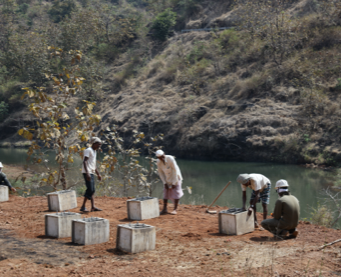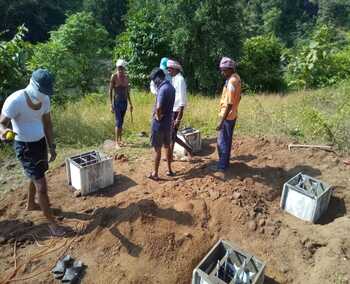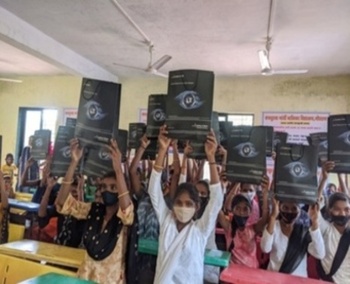Tokpada’s ‘Water Women’
Villagers in Nashik district hail water revolution
By Dev Kotak
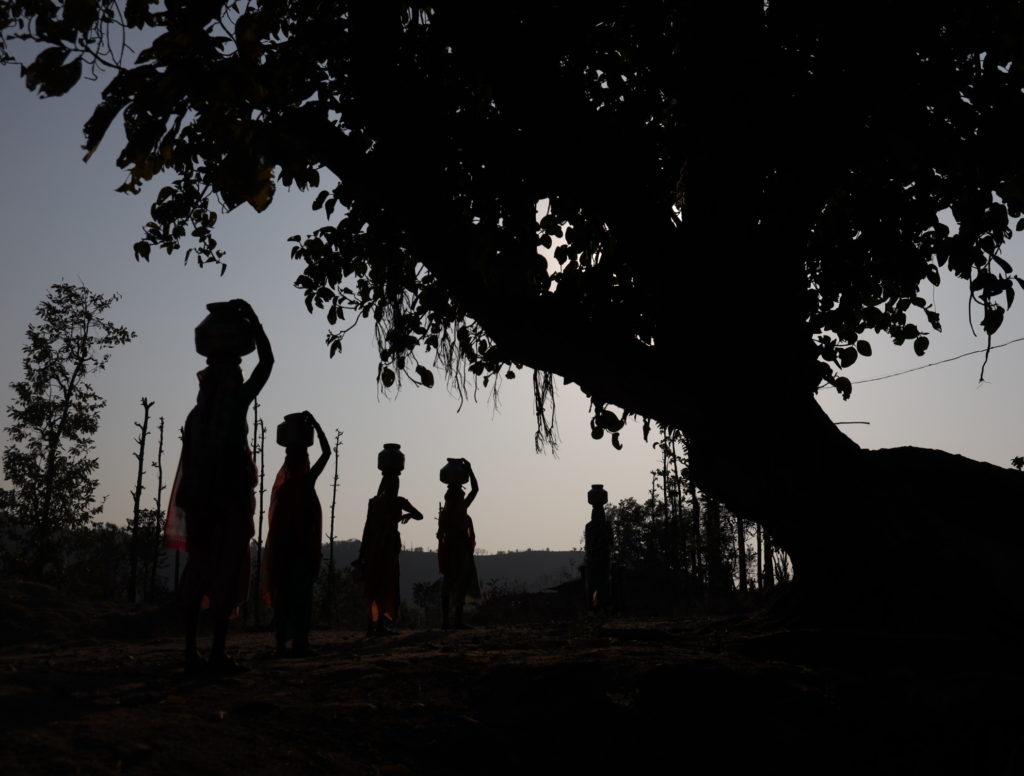
The transformation is a glowing example of the power of the collective, and has been built on the twin principles of bhoodaan (donation of land) and shramdaan (voluntary contribution involving physical activity). In other words, the big landowners agreed to donate some part of their land for the larger cause of the village while the small peasants toiled away to meet these goals.
This intervention was led by Project Chirag in alliance with their grassroot partner, Diganta Swaraj Foundation.
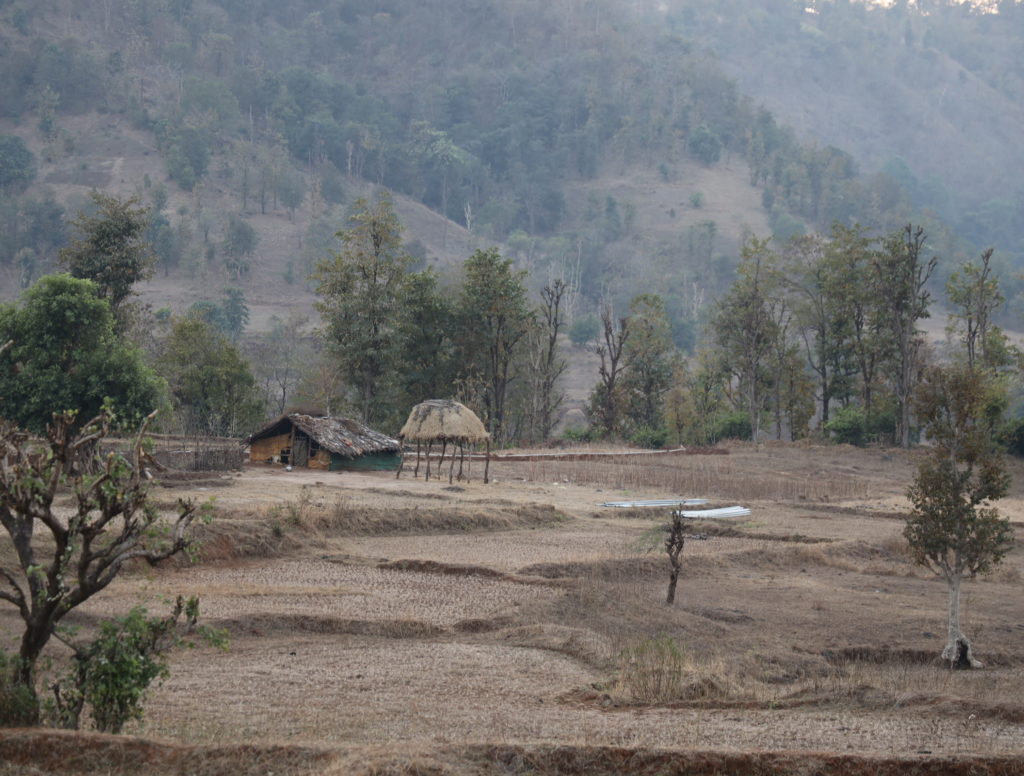
Because of the loss of time, we don’t get to feed our children before school, so they end up skipping classes that day as they cannot attend on an empty stomach. If there is a proper supply of clean water then, we don’t have to make those trips anymore. It is mutually beneficial for our children and us as we can go to the farms, and they to school (children were earlier being used as water carriers). We will remain eternally grateful when we receive water. Main advantage is that our bodies won’t hurt and pain anymore.
- Chandrabagha Jadhav, a villager
“The water filtration plant consists of a pump submerged inside the lake. It pulls the water through suction up to a height of 80 feet and stores it in an overhead tank of 50,000-litre capacity,” informs Rahul Tivrekar, the founder and director of Diganta Swaraj Foundation.
The plant works on ultra-filtration technology. It’s power-efficient and a good idea for a village that suffers from the irregular electricity supply, he adds. Furthermore, the overhead tank is connected to taps across the village.
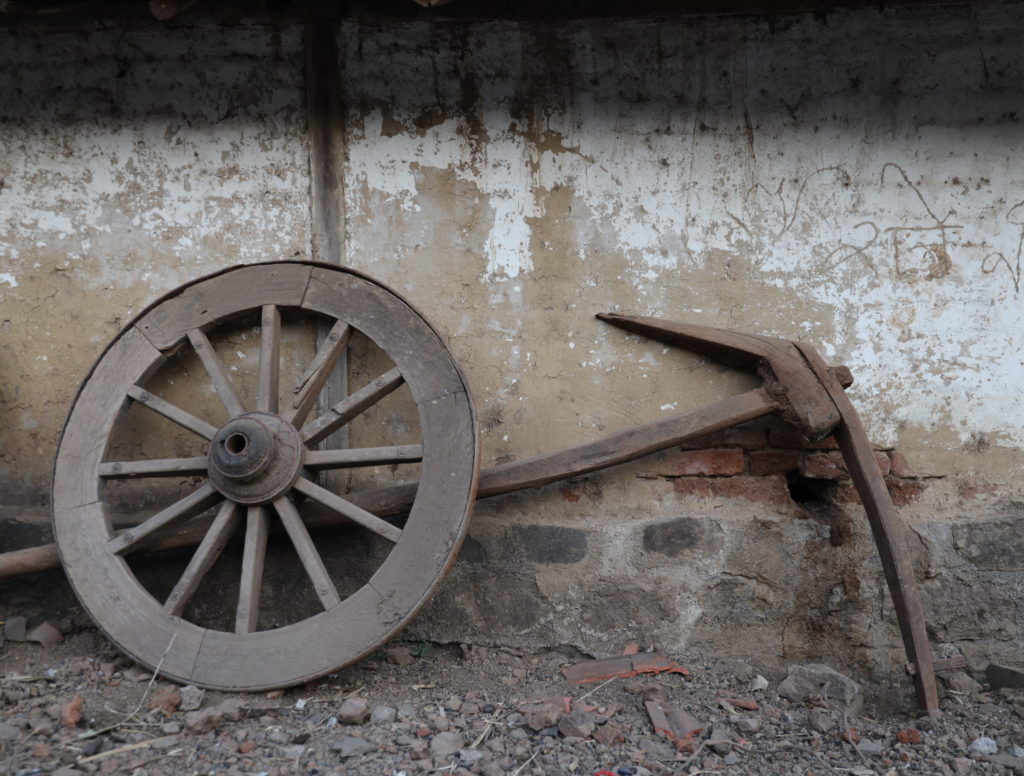
The availability of clean drinking water has led to a drop in the cases of water-borne diseases in the village. “Earlier our stock of 50 tablets (for cough, fever and dysentery) would last for about two months. But our last stock lasted for eight months!” said the resident ASHA (Accredited Social Health Activist) worker.
The tap water facility was followed by the construction of public toilets in the hamlet. This has brought down the instances of open defecation and made the women feel safer.
“Earlier, we had to wait till the dark or venture out very early in the morning to the fields. And it was always embarrassing to take someone along to relieve ourselves. [But] after the construction of toilets, we don’t have to worry about our security,” says another woman anonymously.
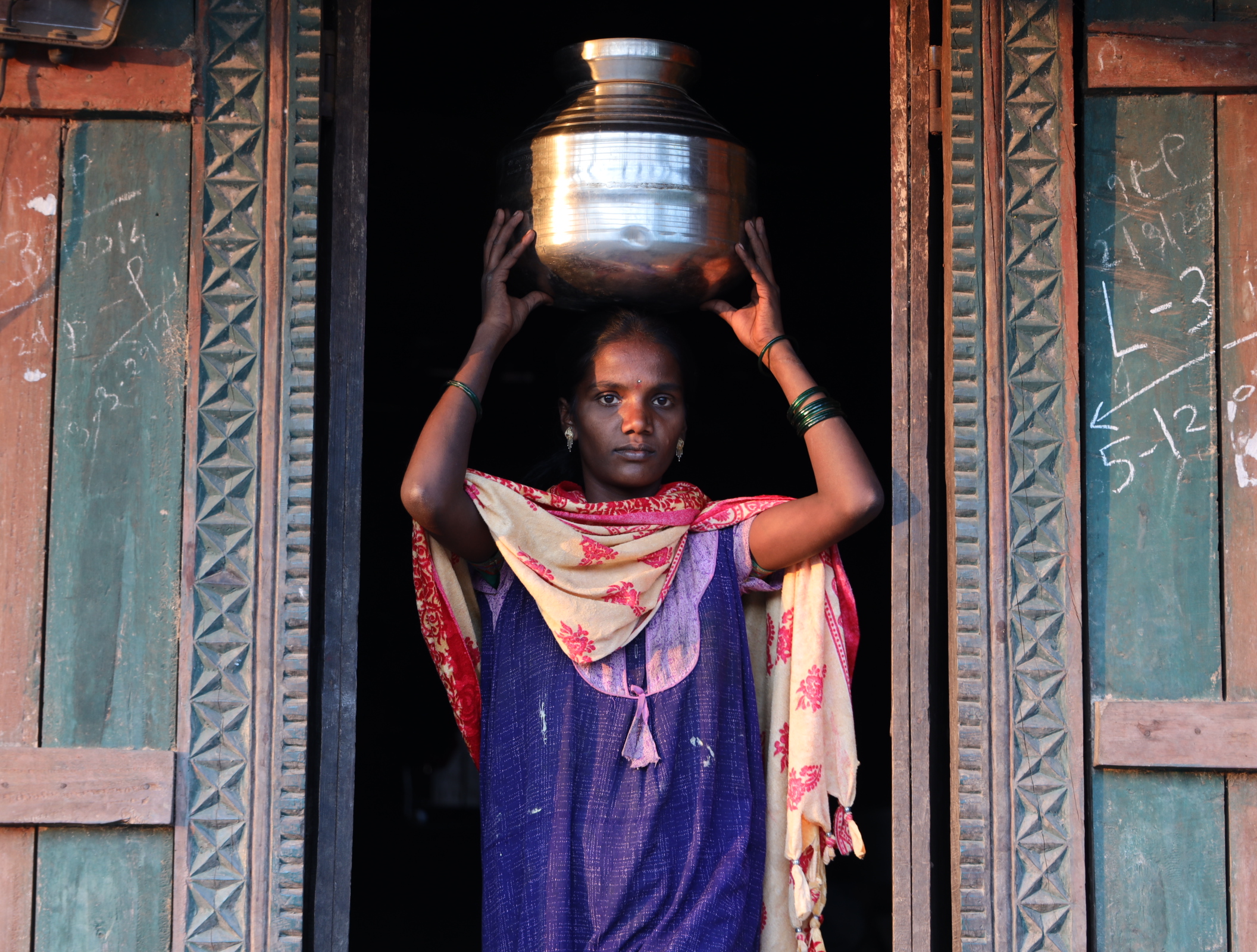
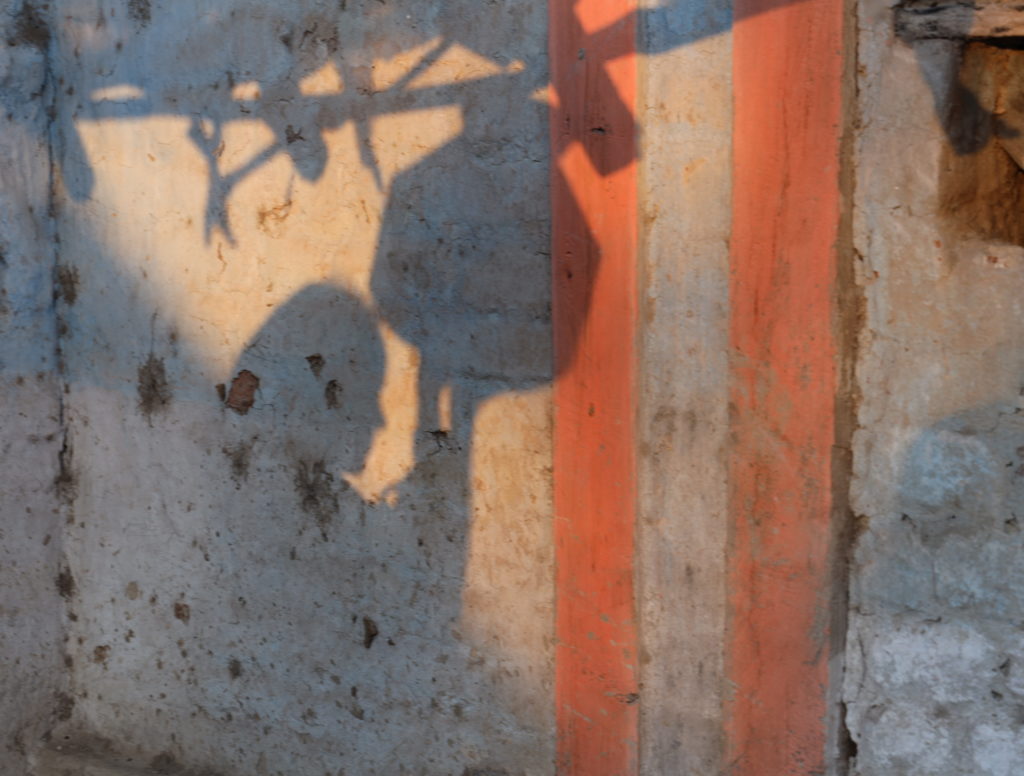
Clean energy and lighting have had far-reaching effects. Around 108 households in Warghadpada today have solar home lighting systems comprising of two bulbs, mobile charging facility and a portable lantern installed under Project Chirag. The farmers are able to save close to Rs100 per litre, which they would earlier spend to run the kerosene lamps. The lamps would also give off dangerous fumes, which the villagers don’t have to put up with any more.
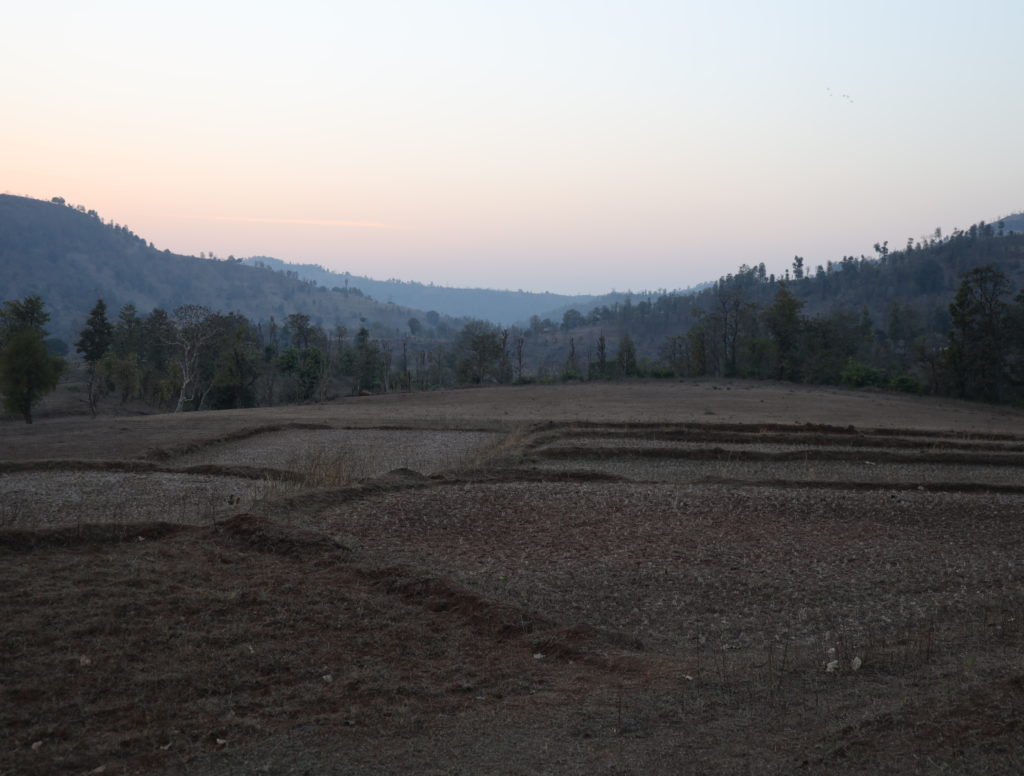
However, education does remain a challenge and it has suffered further because of the pandemic. On the one hand, schools and junior colleges within the Zila Parishad aren’t fully equipped to impart e-learning. On the other hand, many children haven’t been able to take online classes since the lockdown because their parents do not own a phone, leave a smartphone.
Stories of change
© 2021 Project Chirag, All rights reserved.
